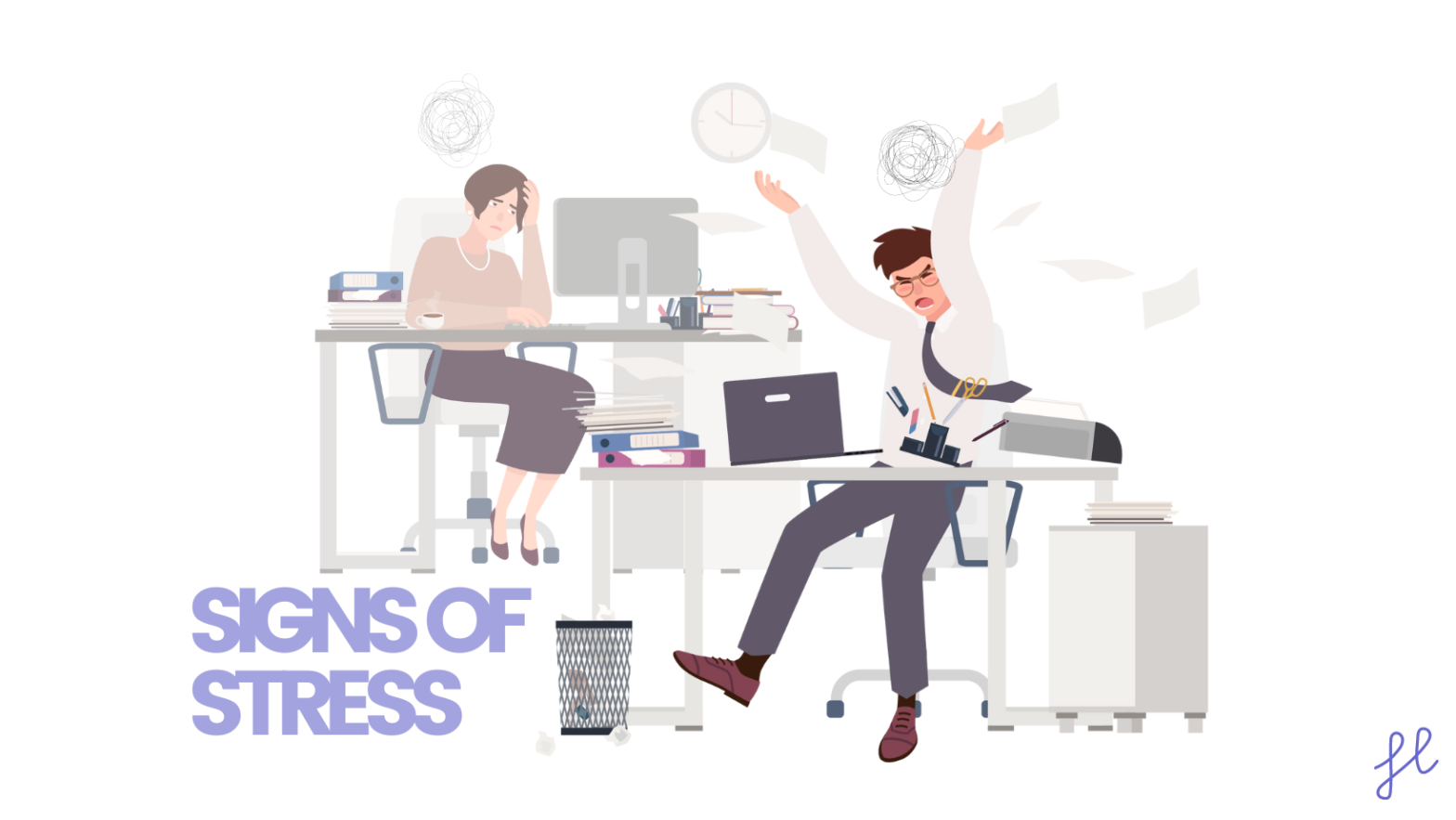The unfavorable reaction people have to the overwhelming pressure of their jobs, or other forms of expectations imposed on them are referred to as work-related stress.
If it is not addressed, excessive levels of stress brought on by one’s place of employment might result in more severe and persistent problems with one’s mental health. Because of this, it is crucial to be aware of the signs and to have an understanding of what you can do about it if it is seriously compromising your ability to lead a normal life.
In this post, we will cover what stress is in the workplace, its symptoms, and stress management in a workplace to help you cope.
Stress In A Workplace Symptoms
Some of the signs of stress at work may be vague or difficult to identify. Instead of facing their problems head-on, most people resort to a “coping” technique, such as telling themselves that they’re just too busy or fooling themselves into thinking that they’ll be fine if they just try harder.
However, this rarely occurs especially if new work comes in or the cause of your stress isn’t eliminated.
Indicators of stress in the workplace include the following:
- Physical Symptoms include headaches, insomnia or absence of rest leading to weariness, alcoholic or caffeinated beverage overconsumption, backache, weight loss or gain, shortness of breath, and regular or prolonged colds.
- Psychological Symptoms include experiencing irritability or angry outbursts, feeling down, negative self-esteem, and a lack of motivation, leading to low productivity. a high rate of absenteeism and illness, exhibiting a cynical and defensive demeanor, constantly finding fault with yourself and your actions, anxiousness and restlessness, not being able to “turn off” from work, and lastly, feeling unmotivated.
Stress Management In A Workplace
Once you’ve come to terms with the fact that you’re under excessive stress in a workplace, the next step is to take measures to determine the root of the problem, lessen its effects, and ensure your long-term health and happiness.
Some suggestions on how to accomplish this are the following:
Determine The Cause Of Stress
Identifying the root of your stress is the first step in dealing with it. Is there anything unique to the position that causes you to experience more symptoms than usual? Is there a special connection at work that explains it?
Take note of the triggers for your rising stress levels so you can address them. The first step toward a healthy workplace for you and others is to collect your thoughts, even if the problems are more basic.
Prioritize Your Health
Many little adjustments to your daily routine can significantly impact your mental health. Consider making an effort to eat and drink healthily and cut back on unhealthy options wherever possible.
Also, it’s important to exercise. Get out of the office as much as possible, even if it’s just for a walk during lunch. Mindfulness practices, such as deep breathing and meditation, have also been shown to be effective at lowering stress levels.
Find Help In The Workplace
It may have been forbidden in previous generations to complain about a hostile or otherwise unhealthy workplace. The significance of maintaining a work-life balance has been widely acknowledged in recent decades, and chances are your employer has a dedicated team or employee you can talk to if you’re struggling with stress on the job.
Talking to your manager or HR department about the stress you’re under at work and the toll it’s taking on your mental health is a smart place to start. For employees dealing with mental health issues, many employers provide resources and programs to aid them.
In Conclusion
When it comes to mental health, no one should be forced to go without help. You merit the greatest care available to help you recover from the effects of work-related stress.
Make sure to be aware of the stress in workplace symptoms and stress management in a workplace so you can handle stress effectively in your job.
What are your coping mechanisms to stress? Share it below!
Let us stay connected in our social media accounts for more healthcare discourse. Follow us on LinkedIn, Instagram, Twitter, Pinterest, Tiktok, and Facebook now!

Contact Me – Wow, I had no idea about this. Thanks for sharing!